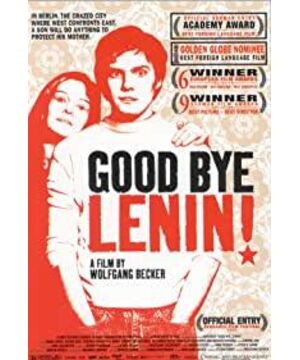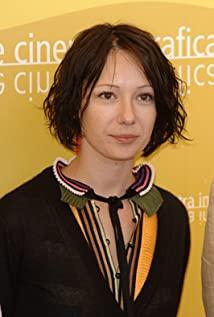The old-fashioned socialist building of the secret police headquarters is very similar to the main comet building of the Chongshan campus in the undergraduate years. The exhibits inside not only restore the work of the secret police back then, but also specially open up an exhibition hall to show the former GDR in the late 1980s. Liberalization movement. Rock music, alcohol and tobacco, sexual liberation.
Like most young people of that era, Alex, the protagonist in the film, longed to breathe the air of freedom and democracy. For them, an institutionalized symbol was more like spiritual nourishment and opium, so they took to the streets to demonstrate, procession. For most young East Germans who lived through that era, they were, ideally, too lucky: the fall of the Berlin Wall, the end of the secret police, the unification of the country. However, the economic liberalization and market competition that inevitably accompany political liberalization have brought too many challenges to the people under a weak system, and the stable living and working environment is hindered by strong market competition and talent squeeze. Eliminated, faced with the pressures of life, the vision of a free and beautiful system has destroyed the last psychological line of defense for many people. Perhaps, in Alex's eyes, the mother, who is a former model worker in a socialist country, will eventually be unable to bear the "disappointment" brought about by the great changes.
So he chose to hide it.
At the end of the film, the two Germanys are officially reunified, and Alex scatters his mother's ashes into the air, accompanied by fireworks celebrating the reunification of the two Germanys. And standing beside him are his mother's former friends and comrades who used to build socialism together.
In a system where institutional propaganda penetrates into everyday life, no one can "live freely" without the influence of the system. However, the pressure of the system has brought about deviations in people's understanding of "freedom". For many East Germans who lived through and even participated in the upheaval of the 1980s, does life today make them feel better, or more disappointing?
This reminds me of the ending of "The Wiretap", when the former head of the secret police asked the writer Dryman: "I don't understand, what is there to write about a system without faith"? The rigidity of the system doesn't seem like it should be compared to "faith," however, what about the people who once depended on it for their lives? Isn't the system and its appendages a kind of "belief" on which to live?
The Stasi fell, and the people of the East no longer had to live in extreme fear. However, what about "Lenin" in their hearts? I'm afraid he's not running alongside that evil machine.
So, is politics life? In fact, we are all patients living in "ism".
View more about Good Bye Lenin! reviews











